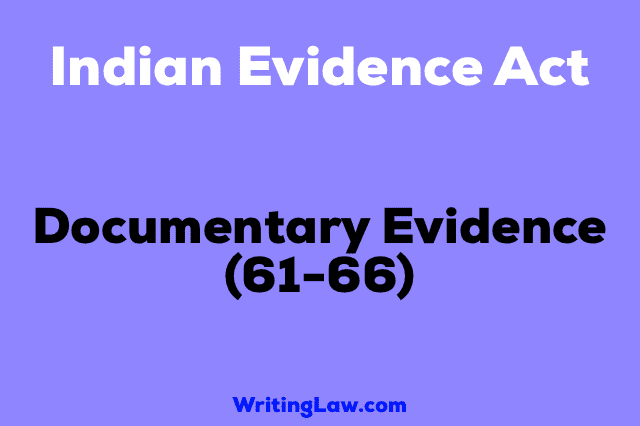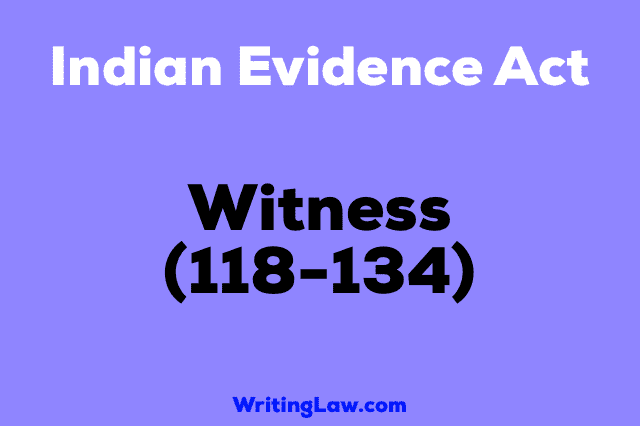DOCUMENTARY EVIDENCE – Chapter V of Evidence Act – Section 61-66
DOCUMENTARY EVIDENCE. 61. Proof of contents of documents.
The contents of documents may be proved either by primary or by secondary evidence.
Comment:
(a) A man may lie but a document will never lie.
Related Case- Afzauddin Ansari v. State of West Bengal, 1997
(b) Admission of a document amounts to admission of its contents and not its truth.
Related Case- Life Insurance Corporation of India v. Narmada Agarwalla, 1993KEEP READING








